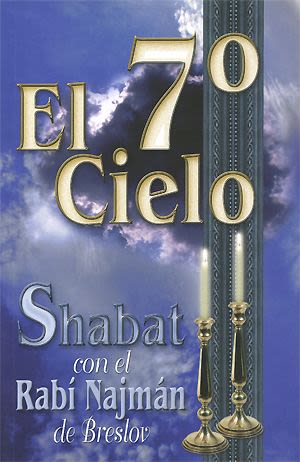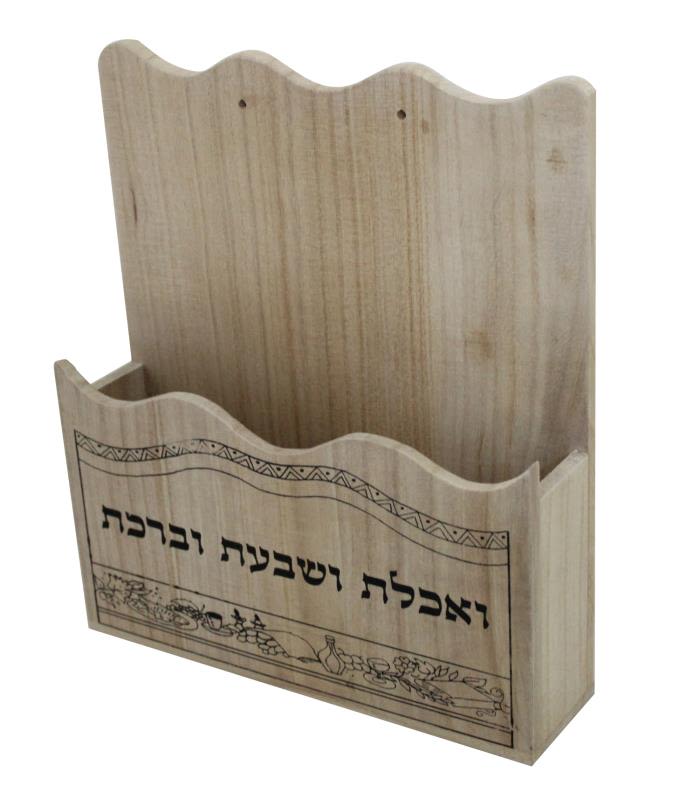
Bechukotai: Money Worries
The Torah's beautiful blessings are eternal. They are just as real today as they ever were. Hashem grants...

"You will eat your bread to satiety … and no one will frighten you" (Vayikra 26:5-6).
The Torah's beautiful blessings are eternal. They are just as real today as they ever were.
HaShem grants us His solemn promise that if we observe His commandments and walk in the ways of the Torah, our lives here in Eretz Yisroel will be characterized by abundance and tranquility.
Apparently today's reality contradicts the Torah. The residents of Israel don't have an abundance of money and they're surrounded by millions of enemies. On the other hand, the Jews of the Diaspora are generally affluent and live without any significant threats. So how do we understand the Torah's blessing?
Rebbe Nachman of Breslev explains (Likutei Moharan I:23) that the greater a person's lust for money, the greater his fear of losing it. Conversely, those who trust HaShem don't crave money, because they understand that HaShem will fulfill their needs. Where there's no lust for money, there's no fear of losing money. Reb Natan elaborates further (Likutei Halachot, Birkat Hamazon: D) that the Land of Israel has a double abundance: First, it is the Land of plenty, with no deficiency; second, it's conducive to overcoming the lust for money. Again, where there's no lust for money, there's no worry!
In light of Rebbe Nachman's and Rebbe Nosson's teachings, we see how the Torah's blessings are eternally true –since the majority of people living in Israel are not financially wealthy, they have less to lose and therefore much less to worry about. Yet bread in Israel is plentiful. So the Torah's blessing, "You will eat your bread to satiety … and no one will frighten you" is a reality! On the other hand, outside of Israel, money might be more plentiful, but so is the lust for money. "Time is money" say the people who chase illusionary riches from dawn to dusk.
The more money one has, the more money one craves, and the greater one's craving for money, the more one fears losing it. Those who crave money are never satisfied; they want to eat like noblemen, so simple bread won't satiate them. With all their money, they're sick with worry and insatiate.
Ponder the following parable, and with HaShem's help, you'll understand the Torah's double blessing of abundance and security (the opposite of fear and worry) in the Land of Israel:
A young man in the Galilee owned a small plot of land on a tranquil hillside, with a few fruit trees and a stream running through his property. He was immensely happy with a minimum of worldly possessions; available water, his daily sustenance, and a roomy tent was more than enough for him. With no need for money, he was free to spend his time playing his flute, singing praises to HaShem, and learning Torah under the shade of an apple tree.
Amazingly, whenever the young Galilean was hungry, an apple would drop from the tree within arms reach. He didn't even have to stand up or pick the fruit off the tree, for the fruit would come to him. When the apple season was over, he'd learn his Holy books under the shade of an almond tree, which would in turn provide him with nutritious almonds for the next two months. Here too, the almonds dropped in his lap whenever he was hungry – he didn't have to pick them either! The same with the carobs…
One day, a pair or wealthy-looking tourists with fancy backpacks were hiking in the Galilean hills and stumbled upon the young Galilean's modest homestead. To fulfill the mitzvah of honoring guests, the young man rose to his feet and picked two apples. The guests gladly ate the apples, marveling at their taste. "You could make a lot of money with these apples," they raved. "These are the best we ever ate! Why don't you plant more trees?"
"And then what shall I do?" asked the Galilean.
"Then you can market apples abroad and earn dollars – thousands of them!"
"And then what shall I do?" asked the Galilean.
"Then you can build an apple juice, cider, and vinegar factory. You can employ people to run the orchards and people to run the factory; you'll have hundreds of employees…"
"And then what?" asked the Galilean.
"You can branch out, build more factories, buy land and plant orchards in Europe and America…"
"And then what?" asked the Galilean.
"You'll be so big," said the two tourists, "that you'll have to go public on Wall Street; you'll make a mint!"
"And then what?" asked the Galilean.
"You can retire, do what you like whenever you like, and live a worry-free life up in these gorgeous hills learning Torah and playing your flute."
"Simpletons!" exclaimed the Galilean, "I'm already doing that!"
* * *
Torah and prayer are our main task in this world; money is only a vehicle. How unfortunate are those that misdirect their efforts from the main task to the vehicle.
May HaShem help us to be satisfied always with what we have, and to trust in Him only for all our needs, Amen.











Tell us what you think!
Thank you for your comment!
It will be published after approval by the Editor.